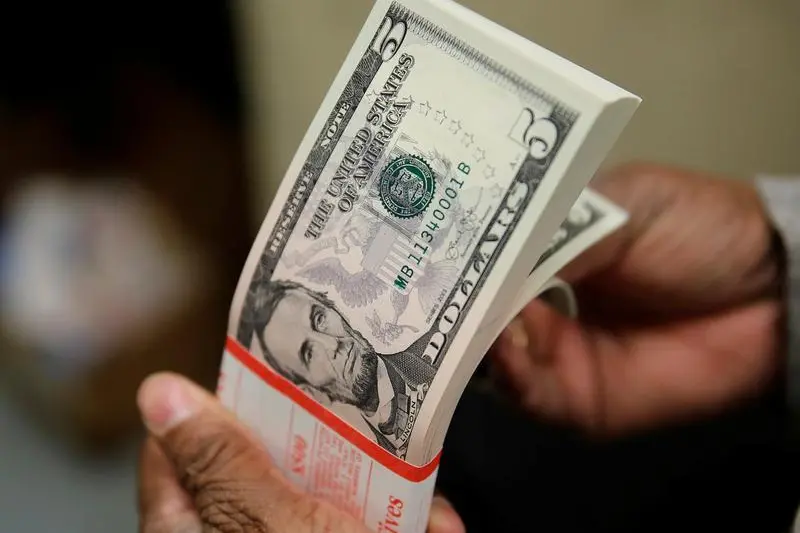PHOTO
SINGAPORE: The dollar nursed losses on Thursday and riskier currencies found support on signs of progress in developing a coronavirus vaccine, even as the virus itself continues to spread and investors fret over simmering Sino-U.S. tensions.
The growth-sensitive Australian dollar held close to 70 cents and near a month high. The euro EUR= hovered just below a four-month top touched overnight on hopes that European leaders can agree on a recovery fund.
The mood pushed the safe-haven Swiss franc half a percent lower overnight and it lifted the crude price and oil exporters' currencies along with it. The Norwegian krone rose to a one-month high of 9.2715 per dollar and the Canadian dollar advanced to a week high of 1.1305 on the greenback.
Moves in Asian morning trade were small as markets waited for Chinese growth data due around 0200 GMT for the latest update on the recovery of the world's second-largest economy.
Both the euro and the Aussie are now testing key resistance levels, ANZ analysts said, with sentiment favouring the upside after the positive early results from a test of U.S. company Moderna's experimental vaccine.
Study results showed all 45 healthy volunteers given doses of the Moderna vaccine had high levels of virus-killing antibodies, although the experimental drug's efficacy in stopping the virus is not yet clear.
"Results like this are encouraging," the ANZ analysts said in a note. "Without a vaccine, devastating health impacts will continue, with significant economic implications. The stakes couldn't be higher."
The Australian dollar last sat at $0.7000 and the euro at $1.1415. The New Zealand dollar spent the morning either side of flat and last bought $0.6564.
Gains were capped by worries about surging infections across the United States where new cases are rising by about 60,000 per day.
Global tension also remains elevated, with Britain ordering equipment from China's Huawei be purged from its communications network by 2027, prompting a warning from Beijing, and China and the U.S. at loggerheads over issues from trade to technology.
President Donald Trump has not ruled out additional sanctions on top Chinese officials over Beijing's crackdown in Hong Kong, a White House spokesman said on Tuesday.
Sterling held steady at $1.2591 and the yen was very marginally firmer at 106.86 per dollar.
Investors' focus in the Asian day is on second-quarter GDP data from China, along with June factory output, retail sales and fixed-asset investment.
A Reuters poll found analysts expect China to report 2.5% growth, reversing a 6.8% first-quarter decline driven by the pandemic.
Markets also expect to see unemployment on the rise in Australia, and the Aussie could come under pressure if the jobless rate turns out worse than the 7.4% consensus expectation. Data is due at 0130 GMT.
All 30 analysts polled by Reuters see the Bank of Korea keeping rates unchanged at 0.50% around 0100 GMT, while it is a closer call in Indonesia where the rupiah has been on a slide leading in to Thursday's central bank meeting.
Fourteen of 26 analysts see BI cutting rates by 25 basis points, with a decision due around 0700 GMT.
The rupiah has been among the worst performing currencies in Asia this week, falling about 0.6% against the dollar.
Against a basket of currencies the dollar is down 0.6% this week so far and last sat at 96.019, just above a one-month low struck overnight.
(Reporting by Tom Westbrook Editing by Shri Navaratnam) ((tom.westbrook@tr.com; +65 6318 4876;))





















